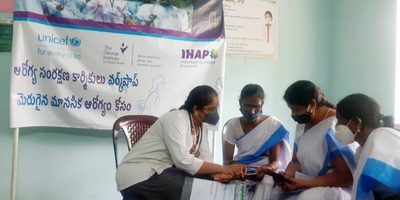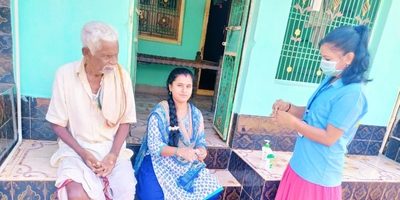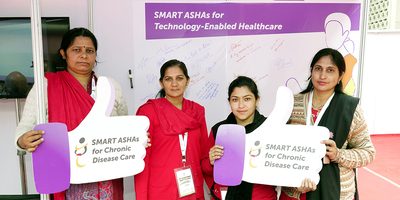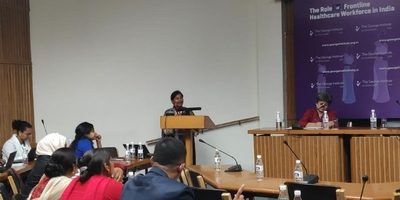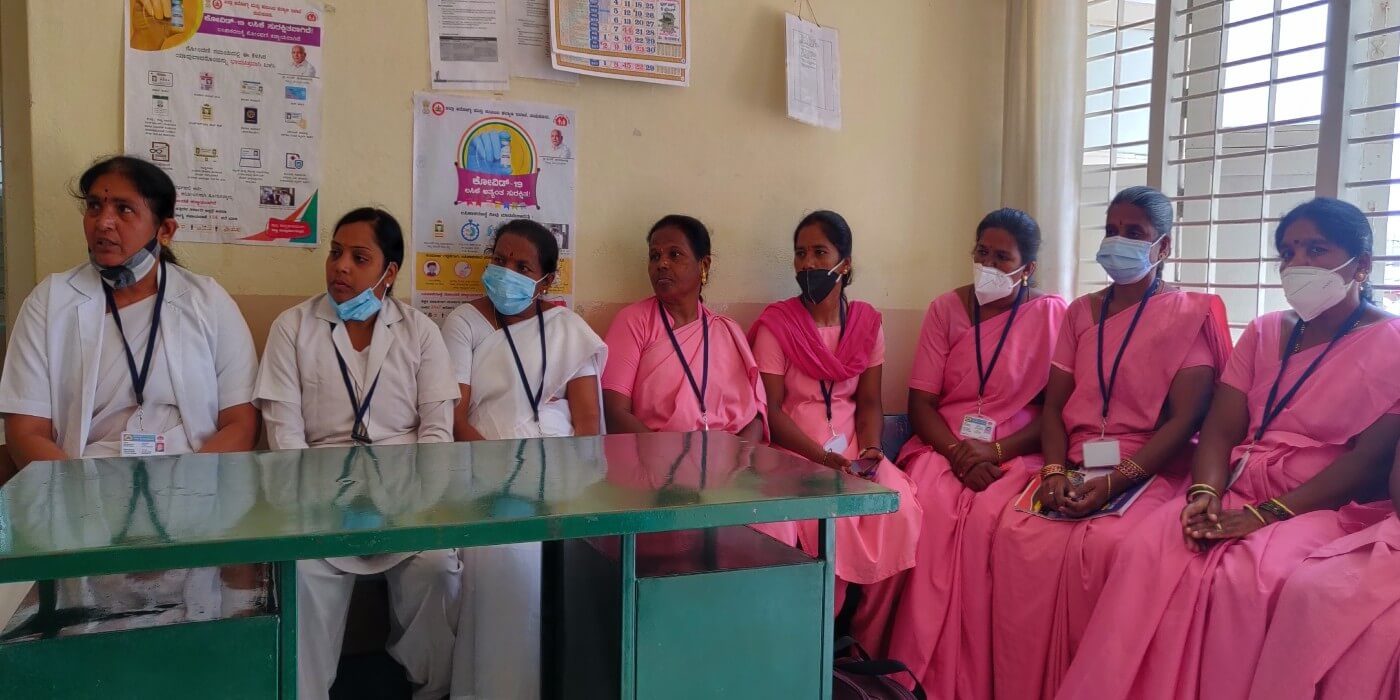
The George Institute leading the Psychosocial Support for Front Line health Workers (FLWs)
The George Institute continuing its journey in the mental health space is proud to announce another initiative supporting the psychosocial needs of the frontline workforce. The institute is leading the Psychosocial Support for Front Line health Workers (FLWs) component (in partnership with Engender Health) as a part of the USAID funded project titled - MOMENTUM Safe Surgery in Family Planning and Obstetrics and Gender-integrated Responses to COVID-19 Priorities in India, launched in Bengaluru, Karnataka on April 25, 2022.
The launch event was inaugurated and attended by Dr K Sudhakar, Hon’ble Minister for Health & Family Welfare & Medical Education, Government of Karnataka, Sri Achar Halappa Basappa, the honourable Minister for Women & Child Development & Empowerment of Differently Abled & Senior Citizens, Government of Karnataka, Dr Arundhanthi Chandrashekhar, Director, National Health Mission – Karnataka along with other senior government officials and relevant stakeholders.
The MOMENTUM project aims to prevent future and current pregnancy-related mortality and morbidity in India by promoting awareness of equitable access to high-quality care for voluntary and consented safe surgeries. It intends to provide a gender-integrated response to the emerging COVID-19 priorities in India, including for Gender-Based Violence (GBV) and psychosocial support for the FLWs.
The George Institute has been leading the mental health space for years through various flagship programmes. In this component, the team is leveraging extensive learnings and experiences from the India Health Accelerator Program and Digital health Innovations for psychosocial Support to FLWs – Accelerated response (DISHA) project. The DISHA project aims to co-create a basket of solutions (combination of online and offline) packaged as an intervention to be implemented in 25 districts across six states, namely: Assam, Chhattisgarh, Jharkhand, Karnataka, Madhya Pradesh, and Odisha. The identified interventions will respond to psychosocial issues faced by FLWs (including increasing reported incidents of stress, burnout, violence, and stigma) and build their knowledge, capacity, and resilience by promoting effective responsiveness in the future.
The hon’ble minister - Dr Sudhakar, highlighted the need for psychosocial support through digital technologies and the potential to integrate Tele-Manas programme like initiatives into the response intervention. Other partners and senior officials present at the launch event acknowledged the urgency to respond to the psychosocial needs of the FLWs and highlighted the positive impact this component holds. Collective action towards designing effective strategies can influence and strengthen the overall outcomes of the MOMENTUM project. Dr Ajay Khera, India Country Representative, Engender Health, appreciated the value of association with The George Institute and other partners to address this primary component of the project.
Following the launch event, the team undertook a preliminary field visit to the Tumkur district in Karnataka to implement the activities planned under the project. They met the District Mental Health Programme (DMHP) and visited Nagavalli Primary Health Centre (PHC) and Kuripalaya Urban PHC. They interacted with the PHC staff, Auxiliary Nurse Midwives (ANMs), Accredited Social Health Activists (ASHAs), Medical officers and DMHP team members to understand the psychosocial needs of FLWs, current coping strategies for dealing with work-related stress and interventions aimed at improving the scenario of mental health and its services provided by the DMHP team.
Moving forward, The George Institute will conduct a series of co-creation workshops in six districts to assess the FLWs’ psychosocial needs in detail and incorporate the learnings to design a final package of intervention to pilot in these six districts and then roll out in the remaining 25 Districts over next 18 months.



